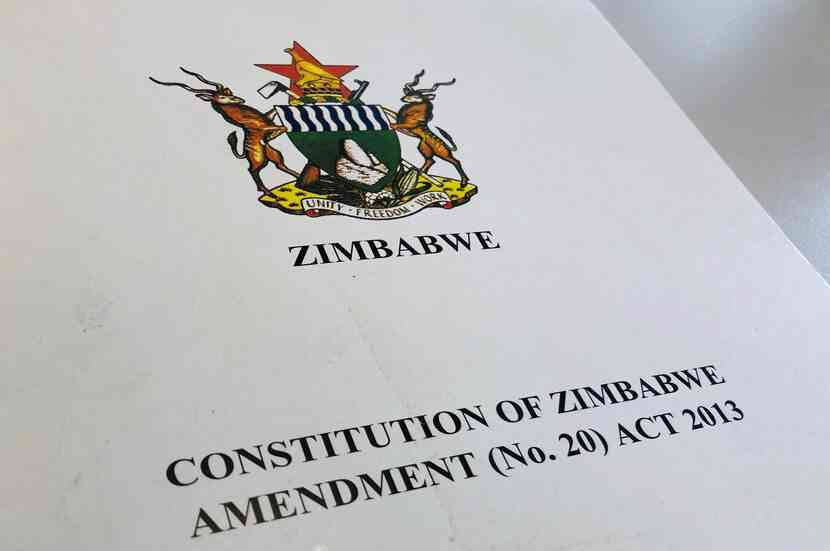
Supply chain management is one of the greatest invisible forces of business organisations. When it works, no one notices. When it fails, everyone does. The quiet, behind-the-scenes supply chain work that truly drives business success might not make the daily headlines, but it will always remain the thread that ties it all together. The complexity and constant flux inherent in this profession forces supply chain professionals into a tailspin of daily anxiety which requires a constant cultural shift in the way things are done.
It must be remembered that doing things the same way doesn’t always mean you are doing things right. This may seem like a no brainer, but you will be surprised to know that very few organisations know that. To meet the demands of a more complex, multi-tiered and more nuanced world, supply chain professionals must deal with the best in class suppliers and service providers that are identified through prequalification.
The prequalification concept deserves ample focused attention in procurement. It is a gold standard for success. Overtime, the benefits of this concept will certainly compound, leaving an organisation in a competitive posture for growth.
Pre-qualification is a formal process of pre-screening and assessing potential suppliers against a predetermined set of criteria to ensure they have the baseline qualifications to provide a service or product before being accepted as a preferred supplier. The supplier assessment process will be used to determine whether a contractor’s capabilities, capacities, resources, management processes and performance are suitable for a project or particular work. The process will assist in the weeding out of unqualified supply chain partners who cannot make the grade upfront.
It is a way of narrowing the field to only those contractors and or suppliers who have the requisite experience and capability to perform at a specific level. Organisations will therefore avoid working with contractors and or suppliers who lack the capacity and experience to fulfil certain contractual obligations.
The prequalification process will entail a thorough analysis of past performance which generally involves the evaluation of previous completed projects, reviewing previous client testimonials and performance reviews for good workmanship on past projects, financial resources dedicated, insurance cover committed, and the industrial safety record achieved during the execution of past contracts.
This assessment includes an in-depth examination of relevant experience, qualifications and technical capabilities, sound financial standing, legal compliance and quality management systems in place.
Procuring entities will scrutinise audited financial statements, assess liquidity ratios and evaluate creditworthiness with a view to gauge financial preparedness.
- Emotional intelligence imperative in supply chain management (II)
- Cost to serve analysis: The holy grail of profitability (I)
- Cost to serve analysis: The holy grail of profitability (11)
- Increased focus on supplier diversity is the way to go
Keep Reading
The prequalification processes give suppliers, service providers and contractors the opportunity to showcase their technical competences and certifications, together with the capabilities and expertise of team members.
The prequalification process should ordinarily reflect industry benchmarks and should be tailored to measure specific competence thresholds.
Suppliers and contractors will be required to submit documentation and information that provide evidence of their credentials.
These may include company profiles, financial statements, licences and certifications, regulatory documents, references and product samples. Prequalification will entail a thorough assessment of the contractor’s capacity to comply with environmental health, safety regulations and standards.
The process will serve as a foundation for ensuring that contractors, service providers and suppliers will stand a chance to meet specified criteria and maintain compliance with the required industry standards and regulatory requirements. The business should ensure that the contractor’s credentials and documents are valid, current and compliant with the applicable laws and regulations.
Organisations participating in a pre-qualification tender process have no expectation to be awarded any contract on the basis of the application for prequalification.
The expectation is that once the supplier has been approved for prequalification, only then can they be shortlisted to participate in the main tender when the opportunity arises.
A structured evaluation during this phase ensures that only those who pass these standards proceed to the bidding stage. The prequalification process is ordinarily conducted as and when large and high valued contracts that require highly specialised technical expertise are implemented.
They are most ideal for the performance of those contracts that involve complex, multi-faceted activity, highly specialised expertise and use of specialised equipment and materials.
The preliminary evaluation of suppliers directly leads to predictable success for better project outcomes such as on-time delivery, reduced rework, improved quality and adherence to project timelines.
It fosters consistency, reliability and excellence across the entire supply chain by meticulously evaluating and identifying service providers who possess baseline capacity and capability to perform in line with expected standards.
One notable benefit of prequalification is the significant efficiency gains and time savings achieved through the streamlining of the procurement process.
Tendering is expensive — prequalification saves time and costs by quickly removing inexperienced or incapable contractors.
It helps to streamline the bidding process and reduce the time and cost associated with evaluating bids from unqualified bidders. It will also facilitate a faster and more efficient response to the company’s needs since pre-qualified suppliers have already been evaluated and approved in advance. This targeted approach reduces the administrative burden on both procuring entities and potential suppliers, allowing for a more focussed and expedited procurement timeline. Supplier prequalification is a process of pre-auditing with a pre-determination set of criteria.
The other known benefit of prequalification is that it will raise the awareness of minimum tender requirements which will potentially help to raise the overall quality of contractors and service providers in the market.
The pre-qualification procedure allows organisations to test the market. It allows organisations to determine whether there is sufficient market interest in bidding for a possible contract to justify the expense. Organisations can change the sourcing strategy in response to the level of interest from qualified bidders.
The preliminary screening process serves the fundamental purpose of identifying entities that exhibit competences and financial stability, thereby ensuring that only well qualified participants progress to the subsequent, more intricate bidding phase.
This proactive approach minimises the likelihood of project delays, cost overruns, or subpar outcomes, contributing to the overall success of the procurement process.
Prequalification also involves supplier verification visits which presents rare opportunities to inspect, review and survey the supplier’s quality control strategies, the current condition of the equipment and personnel technical competence.
The pre-qualification site verification visits are characterised by due diligence and precision analysis with a view to mitigate risks associated with contractor and service provider failure.
The process looks extensively at past and current nuclear and non-nuclear projects executed by the vendor.
The comprehensive prequalification site visits to verify past performance and good quality workmanship provide insights into the reliability, quality consistency, management effectiveness and the overall track record of potential suppliers or contractors.
These supplier verification visits will contribute to a more nuanced understanding of the capabilities and reliability of service providers in delivering successful project outcomes.
Such due diligence through site visits is not only a marker of sound business acumen but also pivotal to maintaining a competitive edge in the market by associating with reliable and high-performing suppliers.
Prequalification processes can also identify contractors and service providers that demonstrate commitment to maintaining a safe work environment for employees and visitors.
Supply chain professionals will need to assure members of the public that when someone goes to work for an organisation, they have a reasonable expectation that they will return home safely to their family at the end of a working day.
This will protect the business from potential liabilities and reputational damage associated with unsafe work practices.
It helps to minimise the risk of safety failure given that substandard or non-compliant vendors would already have been barred from participating in the bidding process.
A non-compliant contractor can compromise the safety of the entire supply chain, exposing organisations to risks such as legal liabilities, project delays, or accidents on site.
Pre-qualification is a way of reducing risks and increasing a business’s confidence in the safety record of its supply chain partners, ensuring that much of the safety challenges do not slip outside the circle of their control.
- Nyika is a supply chain practitioner based in Harare. — [email protected]











